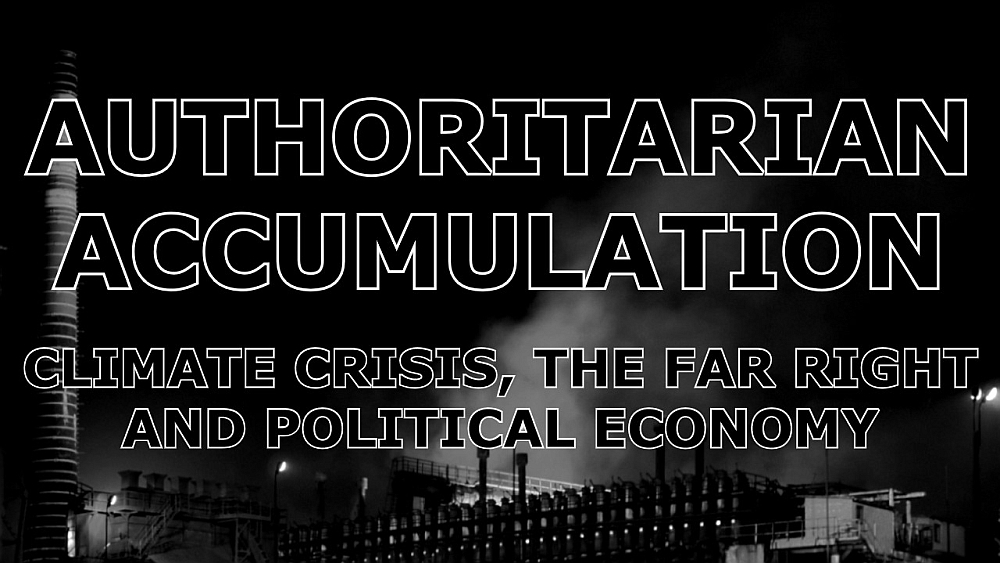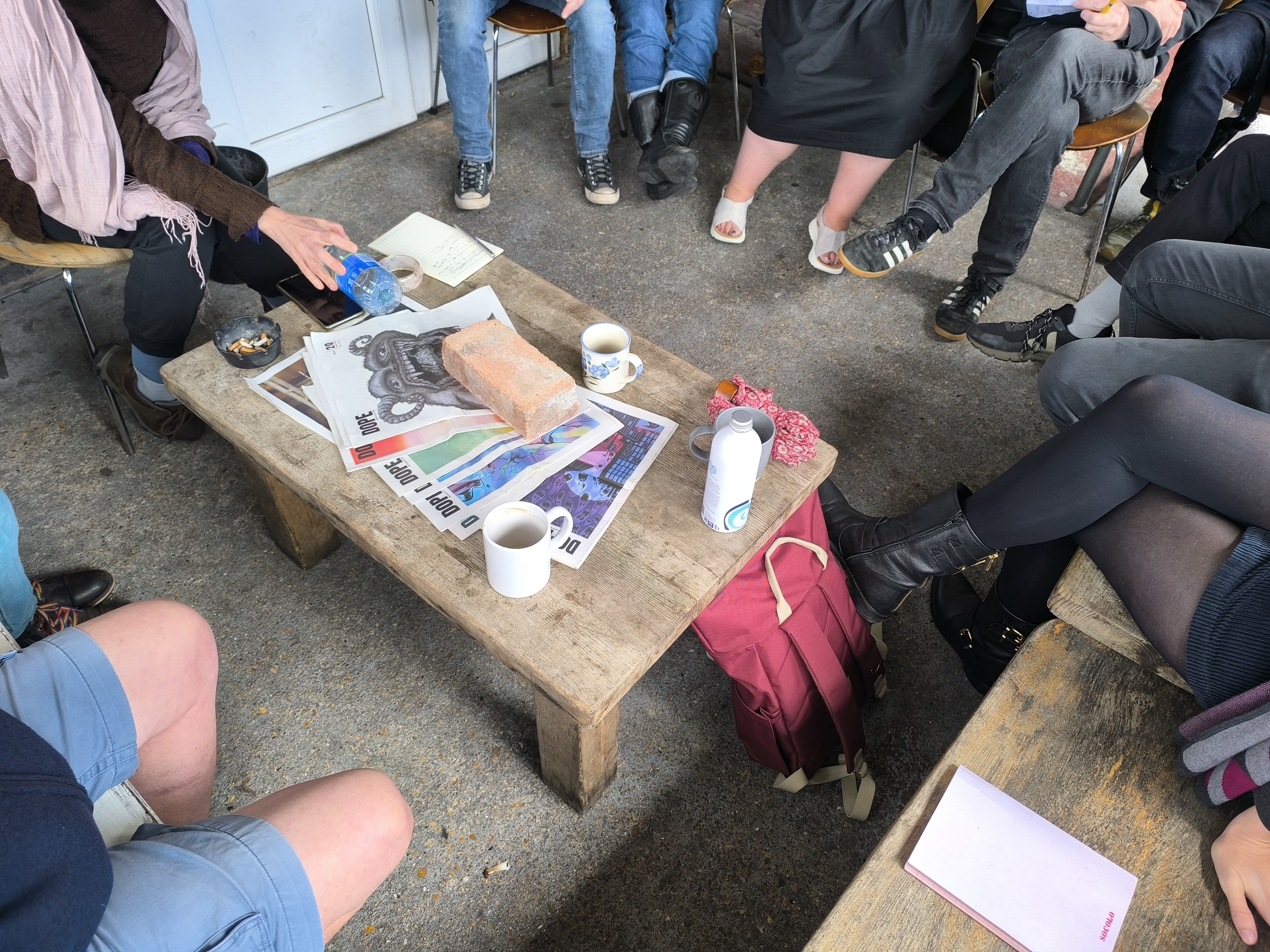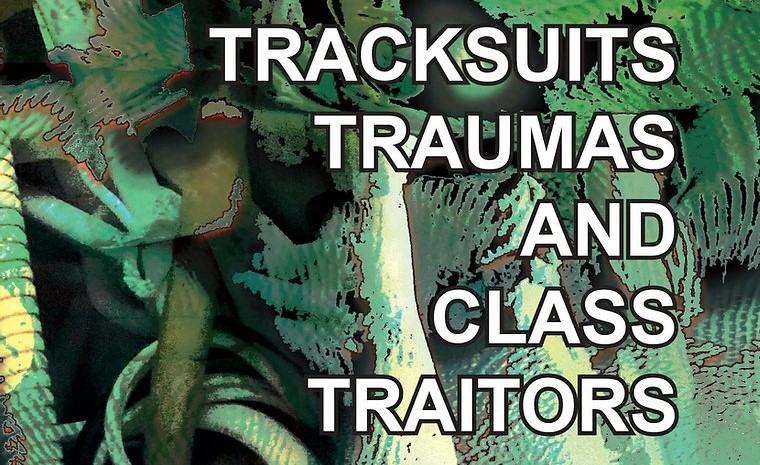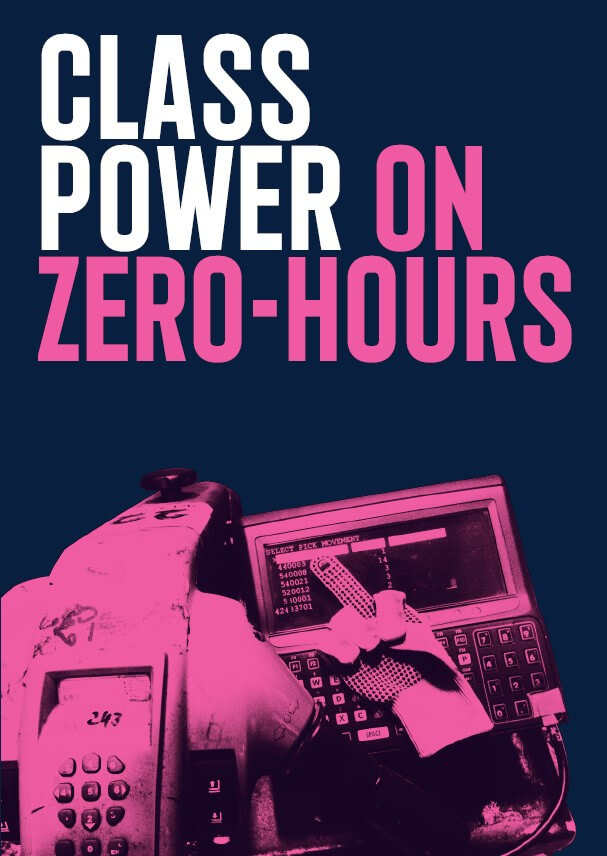On climate crisis, the far right and political economy
By John de Plume
Exploring the socio-political consequences that are today being forced by the emerging conditions of the climate crisis, this article raises the alarm for anti-fascists, environmentalists and anti-capitalists. It addresses mechanisms by which a deathly authoritarian trend might assert itself across the geopolitical stage and finally devastate our environment.
Ecofascism and Geopolitics
Environmental collapse haunts the world today. What does this mean for the critique of political economy? In The Rise of Ecofascism, 2022, Sam Moore and Alex Robert deliver a comprehensive analysis of contemporary fascism and the far right response to climate crises. At stake is the capacity for fascist and far right actors to successfully weaponise a pseudo-environmentalism to further their socio-political ambitions.
Moore and Roberts address, for example, the ecofascism driving the shooters of the 2019 massacres in Christchurch and El Paso. Here, fascist ideology equates a white supremacist racial purity with a perception of the purity of the natural world. It equates climate change with demographic change within its chosen nation. It lionises notions of environmental and racial purity, perceiving each to be threatened at once by immigration and the racial, social and political other. It is an ideology that concludes, as Moore and Roberts observe, that ‘the only possible response is cleansing violence’ (p93). In March this year the ecofascist barbarism continued with another massacre in Buffalo, New York. But is this an ideology isolated only within the terroristic political fringe, or has is permeated the political stage more broadly?
The Rise of Ecofascism addresses urgent issues for antifascists and environmentalists alike. In doing so, it raises geopolitical questions that are essential to understanding the character of socio-political power today at a time in which capitalist accumulation coexists with worsening climate crises. Considering that the climate crisis is of course caused by industrial extractivism and pollution, and knowing that the climate crisis has itself fuelled fascist opportunism, then an emancipatory politics today is, necessarily, best grounded in understanding the climate crisis within the critique of capitalism as a totalising social whole.
With this in mind, I suggest that the most important aspect of The Rise of Ecofascism is in its observation of the emerging interconnections between fascism, the far right, and – most novel to the zeitgeist – the centre right. ‘It is essential to keep in sight the contiguity between the terroristic parts of the far right and the other parts’, write Moore and Roberts, for ‘[w]e have already seen how the ideas of both the Christchurch and the El Paso shooters were not out of keeping with wider far right overpopulation or anti-immigration discourse’ (p99-100). Indeed, we need look no further than Tory deportation schemes or Trumpist border regimes to see just how far such discourses and proto-fascist notions of national purity have successfully pervaded the contemporary political stage. Meanwhile, ‘[t]he radical fringe [is] blamed for the excesses of the movement and make the moderate wing’s radicalism seem comparatively mild’ (p98), just as Moore and Roberts observe.
Soon, so the saying goes, all politics will be climate politics. With the ideological ambitions, if not the terroristic methods, of the political centre and the fascist fringe already overlapping as far as they do today, an anti-fascism or an environmentalism that would focus only on the horrific violence of the fringe would indeed miss the slow moving but mass scale violence and planetary destruction enacted through the right wing capture of centrist political apparatuses. The breakdown of the distance between the far right and the centre is indeed the peculiar characteristic and the particular danger of our present moment. Seeking an overtly reactionary social vision in the name of a nationalist, patriarchial and pro-business ideology, a coherent far right populism is becoming evermore successful in the US, with ideological echoes resounding everywhere from Putin’s Russia, Erdoğan’s Turkey, Bosonaro’s Brazil and the far right power grabs that we are seeing in Europe.
It is with such dynamics in mind that, in their book, Moore and Roberts prompt several points of departure for ongoing debate. In mind of the contemporary critique of political economy as a systemic whole, and considering the material conditions now emerging as a result of the climate crisis, it is to one such particular question posed that I want to turn now. ‘[A]s two moments of a geographically differentiated regime of governance, aren’t liberalism and authoritarianism perfectly compatible..?’, ask Moore and Roberts; ‘how might the escalating scale of governance crises under neoliberalism itself produce the conditions for authoritarianism?’ (p110).
Climate Crisis, Social Crisis, Political Crisis
The neoliberal ideal of recent decades was premised on an individualism that minimised the social role of the state and, in turn, maximised the social dominance of the market. It pursued the expansion of capital accumulation and growth into new terrains of production and consumption across more and more of the planet’s surface. Today, as much as this neoliberal expansion of accumulation has reached its limits physically – there is hardly any territorial body remaining unsubsumed to its processes – it is, equally, reaching its limit environmentally; for industrial extractivism and emissions have left us with a planet in which human life is becoming ever more difficult. Let us explore the socio-political consequences that are forced by this condition.
Faced with the realities of climate heating and environmental collapse, previously neoliberalised regimes of capital accumulation can no longer rely on circumstances to remain static. From novel viruses to deadly weather events, capitalist accumulation today takes place in circumstances that are socially and materially ever more unstable. Despite the fact that it is capitalist extractivism itself that has locked human life into the death drive of climate crisis, as long as capital can extract value from fossil fuel and polluting industry it will continue to do so. The mechanism to curtail accumulation and growth simply does not exist within the logic of the system. As such, today the question of political intervention and industrial regulation polarises bourgeois politics with ever more extreme manifestations on an ever more divergent political stage.
As the cycle of environmental destruction by industry continues, so too are social crises exacerbated with ever more deadly consequences. But the social movements that respond to such crises are not always emancipatory in their content. As we have seen with, for example, the emergence of QAnon and anti-vax conspiracy, crisis conditions may very well give rise to reactionary movements, false solutions and strengthen the political power and influence of the far right. ‘There is a danger that, as before, ongoing unemployment, precariousness and destitution creates populations amenable to the appeals of the far right’, write Moore and Roberts (p114-115).
Furthermore, fighting against the left and the liberatory movements that confront capital and the crisis, the interests of capital must become bound automatically to reactionary ideological and political formations. Capital is bound automatically to the political vision that might provide both the suppression of anti-capitalist dissent and the ideological and legal confirmation of capitalist social relations and their maintenance. Today’s Tories have, in a chilling example of such an emerging draconianism, further criminalised peaceful protest and environmental activism: a legal means to protect by force those business interests otherwise interrupted by protest and unrest.
Social and environmental turmoil does not suit the neoliberal mode of accumulation and its blind faith in the free market as a social leveller. In conditions in which social and environmental turmoil is guaranteed by continued industrial activity and subsequent climate crises, the neoliberal ideological paradigm that seeks accumulation above all else through laissez-faire and socially liberal policies now becomes obsolete under its own logic. For this reason it is now that we are seeing the neoliberal paradigm fall away from the political stage. Contingent, at least in theory, on the free market as the engine of society, neoliberal ideology does not openly foreground mechanisms of overt force and violence. But these are mechanisms that are now becoming necessary to the maintenance of accumulation and capitalist social relations in times that are becoming ever more socially volatile, unstable and unpredictable. For accumulation to continue unmitigated in these new and changing conditions of social and environmental crises, the previous neoliberal ideological paradigm is, in turn, forced to evolve to fit the new and changing circumstance. In today’s crisis conditions, the logic of unabated accumulation as an end itself demands the appearance of new socio-political apparatuses to deliver the same old imperative: the reproduction of capital.
At this point, the authoritarian violence inherent to far right ideology can dovetail entirely with the ideology of free market purism and its attendant pursuit of capital accumulation at any cost. Such is the proto-fascist political economy that we are seeing emerge and assert itself on the political stage today. In the ever more socially and environmentally volatile conditions of the present moment we are already observing the growing confidence of a coherent nationalist populism and far right vigilantism. Grounded in and unquestioning of the structure of capitalist social relations and the fetishism of commodities, this far right absolutism aligns with, indeed is now demanded by, the imperative for capital accumulation and its reproduction as maintained through political force in otherwise unstable and unviable conditions.
Herein we come to the specific socio-political mechanism that I want to label authoritarian accumulation. It is the right wing authoritarian political form potentially reached through the economic imperative to continue accumulation in the otherwise deleterious conditions of the climate crisis. The imperative for capital to reproduce itself in conditions which are otherwise more and more socio-politically unviable for that reproduction require, if unmitigated, socio-political mechanisms of ever more overt domination and ideological aggression – require ever more legal and militarised apparatuses of national and geopolitical power. The appearance of new and drastically transformed political and ideological representation of the interests of capital are bound to the appearance of and determined a priori in the existence of new and drastically changed social, environmental and material conditions.
Authoritarian Accumulation
Today’s rightward political drive already demonstrates certain trends that predict its authoritarian character. It is socially reactionary, racist and patriarchal, it fetishises and militarises borders, it locks in hierarchical socio-economic relations both locally and globally. As such, it confirms the continued reproduction of capital at a time in which the conditions of life on Earth are being made all the more brutal by climate crises. ‘[I]t is precicely on this planet that the far right fight for power’, as Moore and Roberts observe, ‘the actual planet, stratified by barbed wire and watched by the border police from a drone’ (p57-58).
For Moore and Roberts, there are two emerging tendencies on the right that each express the interests of a capitalism reckoning with environmental disaster. The first is ‘Fossilised Reaction’ which derives from the historically powerful influence of the fossil fuel industry, which continues to deploy denialism and conspiracism to justify environmental destruction, that seeks a conservative social regime and the economic domination of the capitalist peripheries (p104). The second formation is ‘Batteries, Bombs and Borders’: climate change acceptance, the monetisation of new and alternative fuels to fossil fuel, achieved by a militarised regime exploiting populations both inside and outside of the capitalist cores (p105). In each case here, we can see how ecological issues are addressed by a far right that demands first and foremost that capitalist social relations are uninterrupted by crises. Geopolitical and economic domination by the hegemon is asserted through legal and military power in tandem with a conservative and reactionary social vision. In turn, the blame for and the consequences of climate disaster are always to be pushed away from capital, the nation and industry.
The far right today enable the collective cognitive dissonance that accepts capital and accumulation as externalised to the cause of and disconnected from the consequences of the crisis. Indeed, this is a necessary mystification for capital if it is to successfully operate in today’s emerging conditions. Wealth disparity is now more extreme than ever and the oil industry, for example, generates the cartoonish figure of three-billion dollars in profit per day. Meanwhile, the rest of us face inflation, recession, austerity and a cost of living crisis. Without bourgeois mystification, now delivered in right wing authoritarian wrapper, the deathly dysfunctional nature of capitalist social relations are for all to see.
Profit maximisation demands that the social, economic and ecological consequences of crises are to be borne by civil society and by the capitalist peripheries. Today’s far right have been busy building the social and political framework to best deliver this arrangement. In their obsession with borders, for example, the far right assert a newly more brutal national, legal and economic limit, produced and policed from within. Equally, in the process, an outside is created and, simultaneously, an outsider – an other who is always there to be economically exploited, blamed for societal failings, burdened by the crises.
Taking white supremacist terrorist group the Proud Boys as an example here, we can see just how far proto-fascist political methods might successfully permeate the political landscape in general. Using street violence on the one hand and penetrating previously neoliberalised political apparatuses on the other, the Proud Boys’ activities exemplify the socio-political danger inherent in the collapse of the divide between the far right and the political centre. If, as the saying goes, one person’s terrorist is another person’s freedom fighter, then it becomes clear that large sections of the political apparatus now approach freedom explicitly in terms of white supremacy and vigilante violence.
What were once far right ideals are today becoming ever more normalised. From Fox News propaganda in the US to anti-migration campaigning in Europe, the social turmoil of the present moment has been all to easily weaponised by far right bootlickers. Far from being fighters for any kind of freedom, this right wing populism has only ever created the cultural terrain within which new extremes of economic expropriation and more extremes of wealth disparity are to be built and consolidated. It is in their blind faith in the market and a shared proto-antisemetic and racist obsession with exposing, exploiting and expelling a perceived other and outsider that the plutocrat and the far right are finding each other.
‘Businesses decamp to Texas despite lurch to social right’, the Financial Times recorded recently. But what is overlooked in the FT’s framing here is that Texas – a stronghold of the ascendant far right in the US – is newly attractive to businesses precisely because of its lurch to the social right. Because the legislative and cultural lurch to the social right and its ultra-nationalist ideals are concomitantly a legislative and cultural lurch towards a pro-business political environment in which the state apparatus functions to make profit maximisation more viable and larger scale than elsewhere. In pro-Trumpist Texas, pro-business freedom equates anti-abortion, anti-vax and anti-socialist aggression. Social reaction, political autocratism, pro-business absolutistism – for the national populist and the far right vigilante both, each aspect is an indivisible part of the ideological whole. Each aspect reinforces the other in a consistent and ever more confident toxic programme.
The Trumpist ‘drain the swamp’ imaginary is exemplary of today’s hard right political vision globally. Despite its triumphal populist rhetoric, it only ever amounts in reality to the creation of policy that clears the terrain for ever more aggressive accumulation, exploitation and industrial growth. Ideologically, for example, it is intuitively opposed to regulating and restricting business operation even for the benefit of workers’ health in pandemic conditions. Just as it is intuitively opposed, of course, to social or political intervention on behalf of the climate. Whilst individual business actors may themselves sometimes be against the rightward political turn, we must nonetheless observe that – without subsequent concrete social or political intervention – the personal views of individuals are not of consequence on a historical level, not of consequence to the cyclical reproduction of capital as an end in itself.
In a recent article for the New York Times, David Broder outlines the electoral and cultural success being achieved by openly neo-fascist organisation, the Brothers of Italy. The Brothers of Italy are, Broder observes, ‘the beneficiary of a much wider breakdown of the barriers between the traditional center-right and the insurgent far right, playing out across Western Europe and America’. As Broder outlines, the rise of the far right in Italy, and the concurrent collapse of the political centre, should indeed be ringing alarm bells for all of us in Europe and beyond. These are not isolated projects.
Moreover – archetypal of the global far right turn – the Brothers of Italy’s cultural success and electoral viability is crucially contingent on its promises of delivering national economic prosperity through pro-business policy. For the far right, capital as a system is never held to account for social crises. Always, false solutions are promised, driven by blame and persecution of the national, political and racial outsider. Capital’s failings are personified and individuals are held to account, but never the system itself. Society is invited to believe what cannot be: the possibility of their own prosperity realised in the concentrated economic power of the regime. For the fascist vigilante and the far right politician both, capitalist social relations are always to be held in tact, are assumed as a synonym for freedom, are to be maintained by force. The Brothers of Italy and the far right globally offer the old neoliberal promise of individualist prosperity, only now, in today’s crisis conditions, it becomes a promise contingent on open brutality, violence and exclusion.
In the mute compulsion of economic relations, capital and its performance is bound to the political forms that best suit accumulation and its reproduction in the particular material conditions of the historical moment. The appearance today, then, of authoritarian accumulation as simultaneously a socio-political and, fundamentally, an economic force is contingent on the unique environmental and social circumstances that are emerging in the present. The politics of societies in which the capitalist mode of production prevails appears, necessarily, as that which best creates and consolidates the conditions of its reproduction. No longer obscured by the failed neoliberal promise of individualist prosperity, today we now see the authoritarian kernel that lurks within the neoliberal shell.
Political reformations represent the particular circumstances of their present. Today’s political turn to the far right now makes apparent and explicit the coercive violence underlying neoliberal social relations. The autocratic vision of the far right dovetails now with that of the market: in today’s warming world, the imperative to accumulate – the essence of capital – can accept any environmental, social or political barbarism and demand it as a necessity.
Accumulate, accumulate! We know that capital has no prophet other than profit, no directional compass other than that of its own expansion and reproduction as an end in itself. If capital accumulation is a cyclical and tautological process bound to continued growth, and the social conditions of the contemporary moment are being changed drastically more quickly by climate change, then – it is just as certain – future growth is necessarily bound to the appearance of equally new, changed and potentially ever more authoritarian forms of politics. Like magnetics, this drift is forced automatically by the circumstance. Today, political authoritarians accumulate power where unmitigated capital accumulation demands more authoritarian modes of political economy.
The neoliberal false promise of the end of history is nowhere any longer believable. It is into this ideological void that the shared authoritarian vision of the plutocrat and the far right is starting to appear. We see already its ultra-reactionary socio-political ideals, its entrenching of hierarchical geopolitical power and economic influence. Without our intervention, we will be locked into industrial growth, extractivism, and the guarantee of climate breakdown. Comrades – environmentalists and anti-fascists – we ignore capitalist reconstruction at our peril.
______________________________





